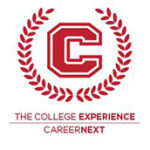By Hannah Smithgall
Exploring postsecondary options can be an overwhelming process. Location, cost and campus life are factors that most students and families take into consideration when starting their college search. For parents of students with autism and other learning disabilities, the list of concerns and questions about a college infinitely expands. Will my student have access to appropriate accommodations? How will they receive such accommodations? Does my student have the skills to advocate for their academic needs on campus? Is my student prepared for the social requirements of campus life? Do they have the independent living skills necessary to be on their own in a traditional college dorm?
The High School Transition
 For some students, moving onto an accredited certificate, associate or bachelor’s degree program is a clear next step. They graduated high school with a local diploma and were academically successful with the supports offered by their school district. The next question parents and students should consider before choosing this next step is whether the student is ready in terms of maturity and level of independence.
For some students, moving onto an accredited certificate, associate or bachelor’s degree program is a clear next step. They graduated high school with a local diploma and were academically successful with the supports offered by their school district. The next question parents and students should consider before choosing this next step is whether the student is ready in terms of maturity and level of independence.
Students with learning differences in high school are provided with an abundance of supports to ensure they receive appropriate accommodations and linkages to helpful resources. Once the student transitions to college, the process of receiving supportive services becomes drastically different. No longer will students receive an individualized education plan or participate in CSE meetings; colleges, universities and their faculty bear no legal obligation or responsibility to identify, support and communicate on behalf of students the same way public school systems do. The college student must be their own advocate and seek out needed services independently.
Navigating College Supports
A college’s Office of Disability Services can be a beneficial resource for students on some campuses. Unfortunately, these offices are not always easily accessible for students who need them, and some students require more intensive support than this office may offer. Many colleges simply are not equipped to support the varying needs of many students with learning and other disabilities. This is why seeking out colleges and universities who offer support programs, either through the school itself or through partnerships with nonprofits, can be an important step for many families and students.
Living Resources offers one such program, called CareerNext. CareerNext partners with three colleges in the Albany, N.Y., area: SUNY Cobleskill, SUNY Schenectady County Community College and Hudson Valley Community College. CareerNext is an academic fee-for-service program that provides students with autism and other learning disabilities the support they need to earn an associate degree, bachelor’s degree or credited career certificate in a traditional college setting at these three schools.
Students in the program attend traditional college classes, live in the college dorms on and off-campus, and participate in campus clubs and activities. The program simply provides additional academic tutoring and supports. CareerNext has its own classroom on each campus in which students meet with their program’s academic coordinator, who provides academic and functional support (e.g., assignment management, prioritization, organization). Our staff also work with students on advocating for themselves and any accommodations they may need, acting as a bridge between the student, their professors and their families.
 If a student doesn’t qualify for a degree-seeking postsecondary program or needs to hone their independent life skills and mature before continuing into a traditional college setting, there are other options available. The College Experience program at the College of Saint Rose, also offered by Living Resources, falls into this category. This is a two-year, residential noncredit certificate program that provides students the opportunity to learn life and career development skills while still getting a college experience similar to that of their peers in traditional postsecondary institutions. Academics are tailored to the skills important to our students, such as finance and budgeting, interpersonal communication/
If a student doesn’t qualify for a degree-seeking postsecondary program or needs to hone their independent life skills and mature before continuing into a traditional college setting, there are other options available. The College Experience program at the College of Saint Rose, also offered by Living Resources, falls into this category. This is a two-year, residential noncredit certificate program that provides students the opportunity to learn life and career development skills while still getting a college experience similar to that of their peers in traditional postsecondary institutions. Academics are tailored to the skills important to our students, such as finance and budgeting, interpersonal communication/
community involvement, apartment/independent living (chores, cooking, etc.), and travel and navigation.
Choosing the Program That’s Right for You
The best way to figure out which program is for you is by looking at what skills you already have versus ones you want to work on. Doing this will help narrow down and compare different programs. The path and program you choose should ultimately help you achieve your goals for future independence and education, even if they’re not the most traditional. For some students, a program like CareerNext is all they need to get started in their higher education and independence; others may only need something like The College Experience to reach career and independence goals. It’s also possible that some students could benefit from taking part in multiple types of programs, not just one; there’s no right or wrong path.
The search for the best-fitting postsecondary college and transition program can be an arduous task for students and families. The most important thing to remember for families and students looking at postsecondary options is that every person and program is different; the program that is the best fit for some might not be great for others. ThinkCollege and College Autism Network are two great resources for families looking for programs in their region.
 Hannah Smithgall assists families in the admissions processes for The College Experience at the College of Saint Rose and CareerNext at SUNY Cobleskill, Hudson Valley Community College and SUNY Schenectady programs. She graduated from SUNY University at Albany with a B.A. in history. She is passionate about the role that both formal and informal education can play in our lives, and she has experience working in youth, family and community programming for nonprofits and cultural organizations in the Albany, N.Y., area.
Hannah Smithgall assists families in the admissions processes for The College Experience at the College of Saint Rose and CareerNext at SUNY Cobleskill, Hudson Valley Community College and SUNY Schenectady programs. She graduated from SUNY University at Albany with a B.A. in history. She is passionate about the role that both formal and informal education can play in our lives, and she has experience working in youth, family and community programming for nonprofits and cultural organizations in the Albany, N.Y., area.
